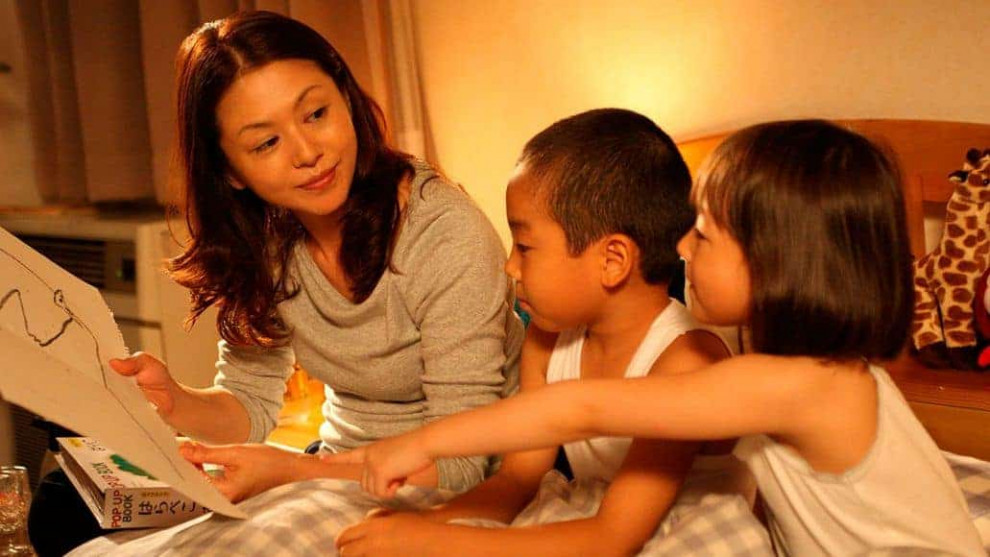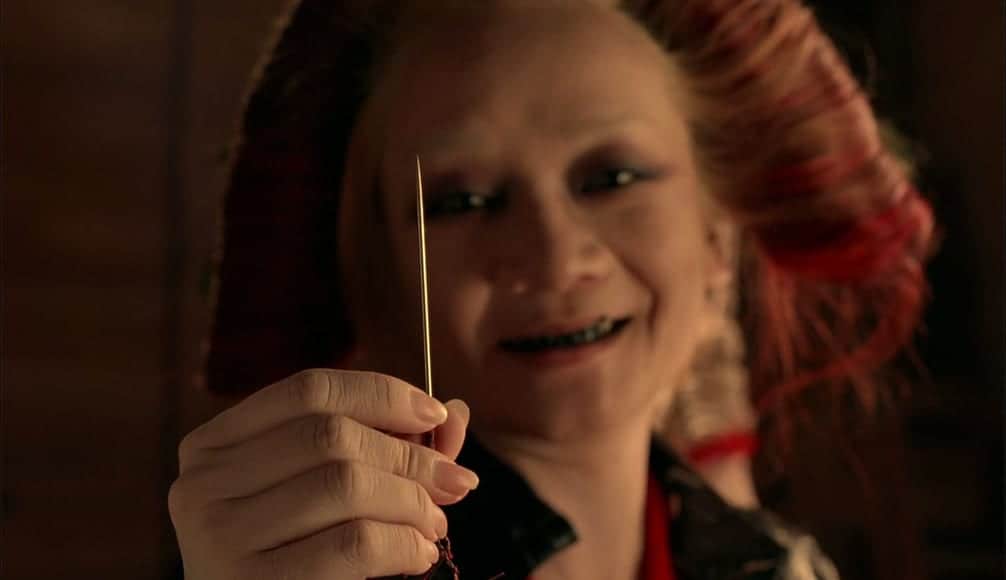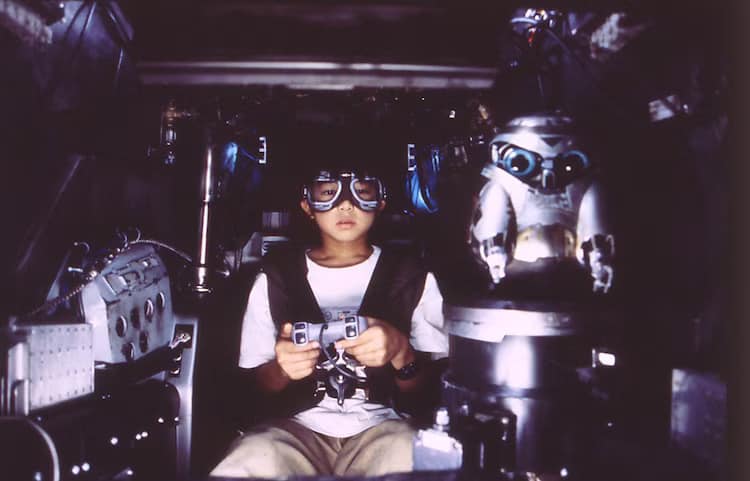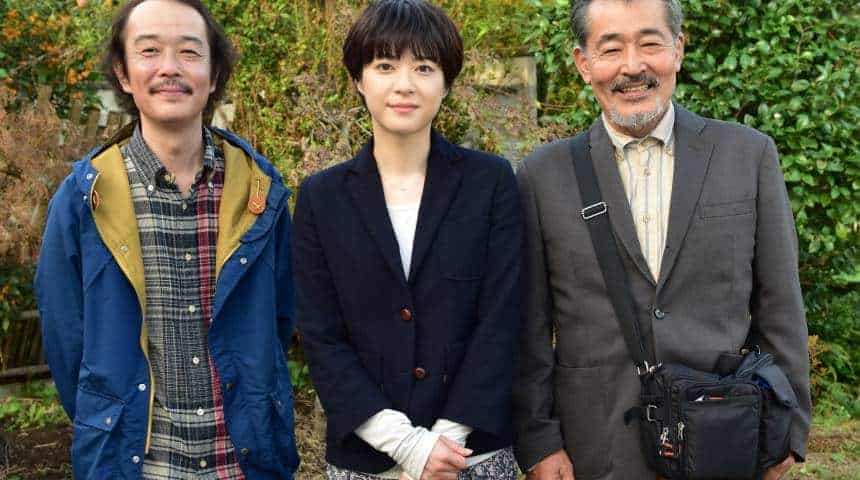Based on the homonymous, autobiographical, and still ongoing manga by Rieko Saibara, this particular movie has a very interesting story behind its production. Saibara used to be married to Yutaka Kamoshida, a war correspondent based in Bangkok. From the beginning, when they met in the mid 90s, he was already addicted to drugs and alcohol, though with her help he learned to stand on his feet and together, they returned to Japan. They worked together on a number of publications until Kamoshida relapsed. They divorced in 2003 but they got together in 2006 when he decided to commit to a rehabilitation center. What is peculiar about this film, is that while Kyoko Koizumi had been cast as the lead from the beginning, the role of Yutaka eventually went to Masatoshi Nagashe, her ex-husband, in a quite surprising parallel.
Buy This Title
The script follows the actual story very closely. Rieko is a famous manga artist who works from her home, with an assistant whose main duty is to fix the mess Rieko usually makes. She lives together with her two children, Bunji and Fumi, her mother and her alcoholic husband, Yutaka. Rieko's everyday life is quite difficult, having to address family troubles, the upbringing of her children, her mother's acrimonious comments, and developing ideas for her manga. Yutaka is a good father, but he does not stop drinking, despite her warnings and his own promises.
Kobayashi makes an excellent job of adapting the manga, creating a movie that can stand on its own, something relatively uncommon, since the majority of similar movies usually demand that the spectator already knows the concept.
The film begins as a comedy; however, by employing a heap of dark humor Kobayashi transforms it into a family drama, while avoiding the reefs of the melodrama and the didacticism regarding alcoholism destroying families. Thus, he retains a pleasant tone throughout the majority of the movie, even if some very dramatic scenes appear now and then.
Kyoko Koizumi does a wonderful job as Rieko, presenting a variety of feelings in a very natural way. The scenes where she has to face her drunken husband are the highlights of her performance, while her interactions with her assistant offer a very entertaining comic relief. Masatoshi Nagashe as Yutaka is superb as a raging alcoholic, who desperately tries to change but fails every time. Believable to the point of suspicion, Nagase manages to be great even when he plays the role of the good father. The chemistry of the two protagonists is probably the film's biggest trump card.
In terms of cinematography and editing, the film does not do anything impressive, although Koichi Sato and Ryuji Miyajima, respectively, make a nice job of letting the story and the protagonists shine.
“Kaasan Mom's Life” depends almost exclusively in the performances of its cast, and in that fashion, both the mother-in-law and the two children make a significant addition. Overall, the film is quite entertaining and very easy to watch, and that is where its value lies.


















